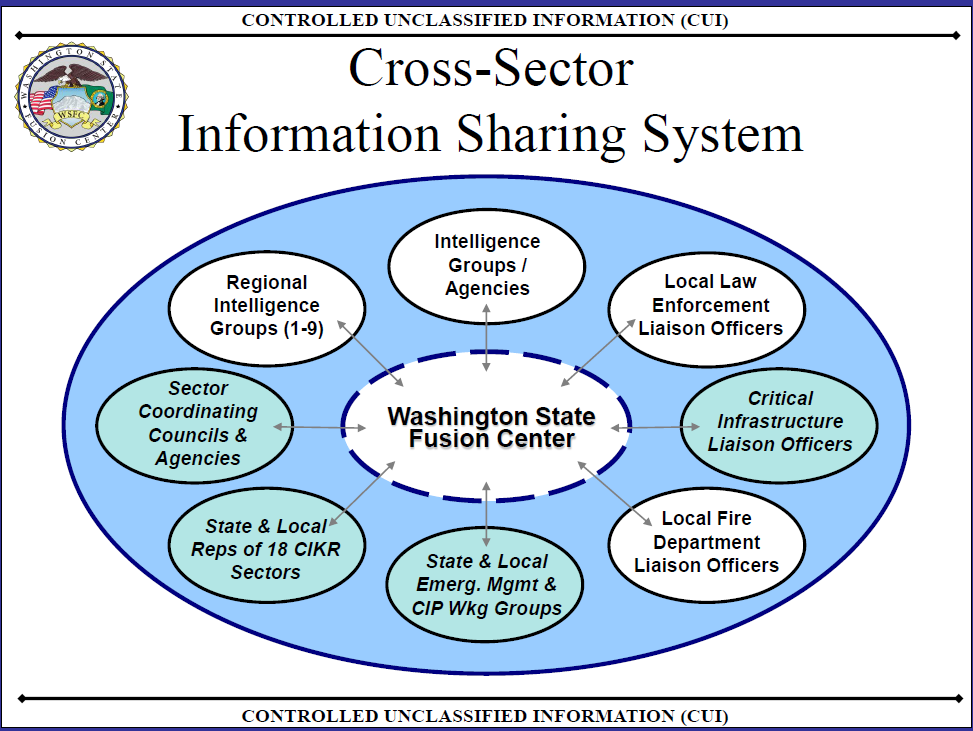DHS-- Fusion Centers & EOCs Need to Talk
- John Cornelison
- January 11, 2012
Table of Contents
 According to the inspector general (IG) of the Department of Homeland Security (DHS), state and local fusion centers and emergency operations centers could improve the response of their jurisdictions to terrorism and natural disasters if they talked to each other more often. Many fusion centers and EOCs surveyed do not exchange information.
According to the inspector general (IG) of the Department of Homeland Security (DHS), state and local fusion centers and emergency operations centers could improve the response of their jurisdictions to terrorism and natural disasters if they talked to each other more often. Many fusion centers and EOCs surveyed do not exchange information.
While Washington State’s fusion center’s near-daily briefing tends toward being a fear based police blotter, extracting news from the conservative press, it does offer periodic useful news of value to the Vashon disaster preparedness community. Read a bit more about the Washington State Fusion Center’s up and downs at the Operation Defuse website. A related activity I occasionally come across is the  NWWarn.org site, responsible for all those “report your suspicions” notices plastered on our ferries.
NWWarn.org site, responsible for all those “report your suspicions” notices plastered on our ferries.
The DHS IG report, Relationships Between Fusion Centers and Emergency Operations Centers sites lack of knowledge that these types of institutions should work together. "Officials at fusion centers and emergency operations centers we visited were not always aware of each other's roles, capabilities and information needs," according to the report. "In some areas, these officials had limited or no interaction, which could hinder response to natural or man-made disasters. "Fusion center and emergency operations center officials also were not always aware of and did not always utilize federal guidance developed to address coordination and information sharing efforts. More than 83 percent of the locations visited were either unaware of or did not utilize federal guidance for fusion center and emergency operations center interaction provided in Comprehensive Preparedness Guide (CPG) 502," promulgated by the Federal Emergency Management Agency (FEMA), the report added. Both fusion centers and emergency operations centers would benefit from talking to each other as they have similar missions. They each manage the flow of information on the ground in their jurisdictions to the federal government and vice versa, the IG report said. The centers should make it a top priority to form relationships and to work together to exchange information and intelligence on a daily basis to strengthen the safety and security of state and local residents.


